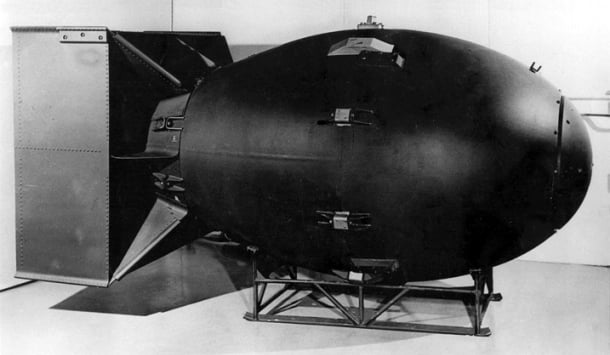
I finished reading Alas, Babylon by Pat Frank over the weekend. It’s a good book, and so I thought I’d briefly share my opinions.
First, know this: It was published in 1959, with the Cold War in full swing. Not two years prior, Russia had successfully launched the world’s first satellite, Sputnik, igniting the space race and instilling fear and wonder in the hearts of average citizens. Just what was it doing up there? Watching us? Spying?
But Sputnik 1 wasn’t our only worry. We were living in a new Atomic Age, an era of nuclear weapons and school house doomsday drills. Hide under your desk and you’ll be just fine, they said. There was an optimism there, sure — that someone could live through such a disaster, but also that nuclear energy was the way of the future. An age of energy. An age of peace.
In the preface to Alas, Babylon, Pat Frank himself explains why he chose to write a novel about post-apocalyptic civilization. He’d been asked by a friend, “What do you think would happen if the Russkies hit us when we weren’t looking — you know, like Pearl Harbor?”
And that was it, thought Frank, the book needed to be written. It needed to be put into perspective.
“It was a big question. I gave him a horseback opinion, which proved conservative compared with some of the official forecasts published later. I said, ‘Oh, I think they’d kill fifty or sixty million Americans — but I think we’d win the war.’”
And so begins the story of Alas, Babylon. It follows Randy Bragg, a failed 30-something politician, and his small central Florida community as they cope with the realities of a world ravaged by atomic war.

After an unfortunate turn of events at a harbor in Syria, The Soviet Union retaliates with a barrage of nuclear weapons sent straight to the major cities of the United States. Washington, Chicago, Orlando. Many, many others.
Randy Bragg is given time to prepare, thanks to a heads-up from his brother, a Strategic Air Command officer in Omaha, Nebraska. But the world is forever changed, and average communities (or those fortunate enough to evade the initial destruction) are thrust into a new reality of anarchy, highwaymen, and “contaminated zones.”
The story, however, is ultimately about a return to communal living. It’s about discovering who you truly are in a time of crisis, and how average citizens must suffer for the failures of inept world governments.
And it’s pretty great.
I don’t want to reveal too much about the story (and I’m already stretching my use of the word “briefly” here), but it’s interesting to see the characters of Alas, Babylon develop.
In the beginning, some of them are restless, lost without any real purpose in their lives. As terrible as the nuclear fallout is, many of them eventually find themselves, and that gives a certain amount of hope to an otherwise horrifying event.
There’s something to be gained from the end of the world, I guess.
If I had one complaint about Alas, Babylon, though, (possible spoilers) it’s that the main characters are just lucky. Just generally lucky. They live away from the major cities in the small town of Fort Repose, next to a river and a farm land. There are plenty of oranges, fish for dinner, and access to clean, though smelly, running water.
If you had to live in a post-apocalyptic contaminated zone, that’s exactly where you’d want to be.
Aside from that, I’d easily recommend Alas, Babylon, especially if you’re into post-apocalyptic fiction or character-driven survival stories. It’s an incredibly easy read, as well, so check it out if you haven’t already.


